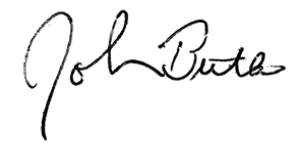- We are taxed in a great many ways
- Some of these overlap into de-facto double taxation
- Inheritance tax is arguably a form of triple taxation
Elizabeth Barret Browning is one of the best-known English Romantic poets. Arguably her most famous poem, Sonnet 43, begins as paraphrased in the title above, with the original word being “love” instead of “tax”.
It ends with the word death. No paraphrasing is required there. The taxes we all pay, all our lives, also end only in death, with the inheritance tax (IHT).
IHT is controversial for several reasons. First, it seems morally repugnant, to some, to levy a tax on the dead and, indirectly, on the bereaved. Second, what is taxed in death was previously taxed during life as it was acquired, implying double taxation. Third, the wealthy can (and do) avoid it through the creation of trusts and other, more sophisticated financial structures. Fourth, many countries don’t have it, so it would seem to be an optional, unnecessary tax.
I have much sympathy with all of the above criticisms of IHT. But the second point is worthy of some elaboration. IHT is without doubt a form of double taxation. Even wealth that was inherited from a prior generation, and held throughout one’s life, was still taxed when originally acquired.
But IHT is hardly the only form of double taxation. Take VAT or sales tax for example. That which we purchase and consume, we pay for with after-tax, not before-tax income. So, each and every time we open our wallet, we are being double-taxed.
Money not spent is saved. That which is not saved in a tax-free wrapper, such as an individual savings account (ISA), is subject to tax on interest income and possibly also capital gains. Any tax on savings, which is after-tax wealth, is thus also double taxation.
Then there is the stealth double tax of inflation, which eats away at all forms of savings. Just as bad, as incomes tend to rise with inflation, then so-called “bracket-creep” can occur, pushing households into higher tax brackets, even as their real, inflation-adjusted income stagnates or even declines.
The same is true for capital gains, or stamp duty thresholds. Inflation tends to lift asset prices generally, and so inflation has the pernicious effect of subjecting an ever-greater portion of accumulated household wealth to these additional taxes, yet another form of double taxation.
At the end of it all, when the blood has been squeezed from the stone, what’s left over after a lifetime of double taxation in all its forms is taxed yet again, as IHT. When you look at it that way, IHT is not a form of merely double taxation, but TRIPLE taxation!
IHT may thus be the most unjustified, unfair tax ever conceived. They say that taxes are the price we pay for civilisation, but this one is almost certainly the most uncivilised of them all.
“Tax avoidance” has received much bad press in recent years, with some justification, as occasional, notorious disclosures such as the “Panama Papers” have revealed. But if there is one tax that your good conscience should have zero compunctions about managing, reducing and avoiding, it is IHT.
Southbank Investment Research has recently updated a simple how-to guide to reducing or even eliminating, entirely legally, your possible future IHT liability. You might find it helpful. Of course, we do not offer tax advice, so please consult a qualified tax expert if you’re interested in learning more about the various methods and measures presented in the report, which will be available tomorrow – keep an eye out for more information on how you can access it then.
Until next time,

John Butler
Investment Director, Fortune & Freedom



